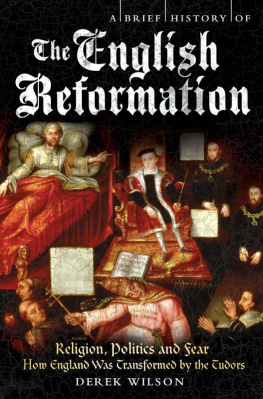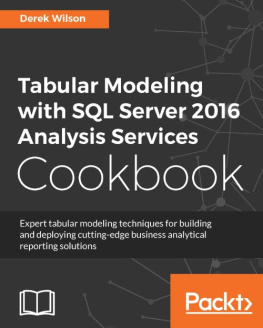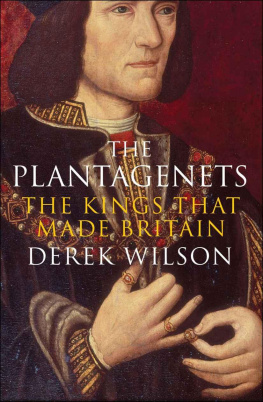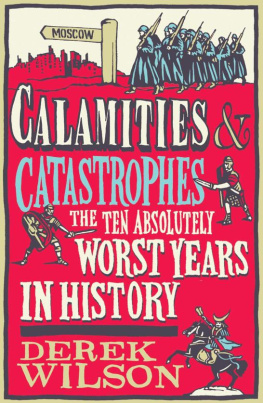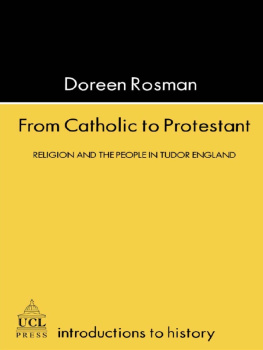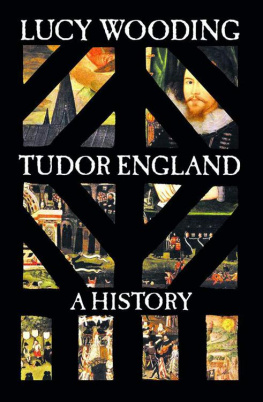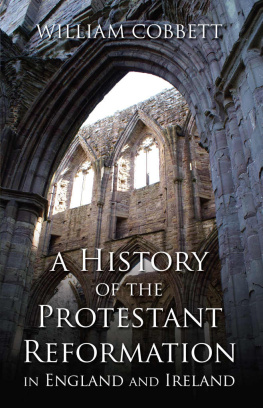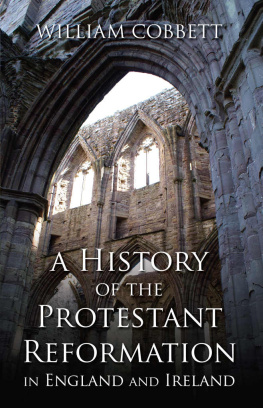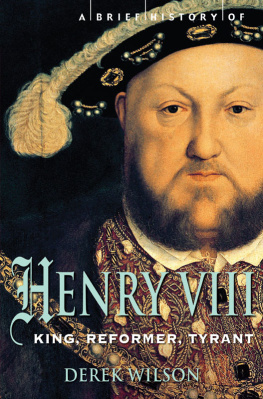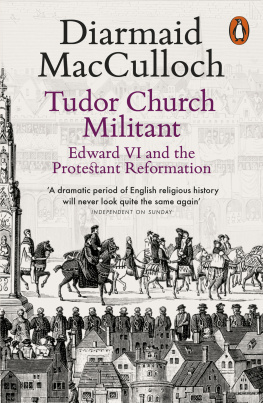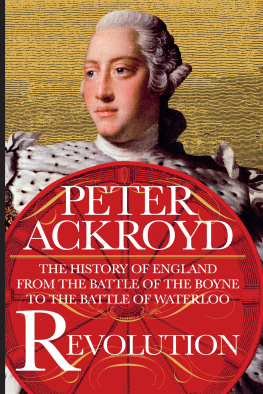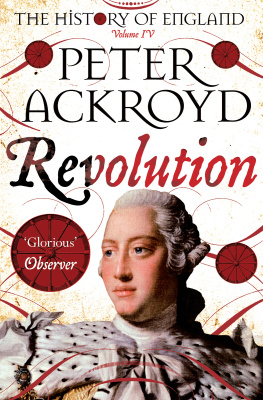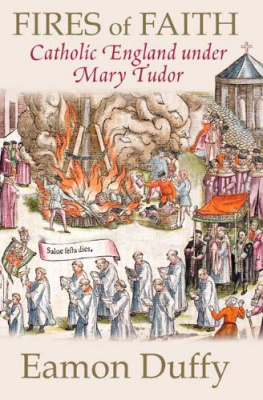Derek Wilson - A Brief History of the English Reformation
Here you can read online Derek Wilson - A Brief History of the English Reformation full text of the book (entire story) in english for free. Download pdf and epub, get meaning, cover and reviews about this ebook. year: 2012, publisher: Running Press, genre: Religion. Description of the work, (preface) as well as reviews are available. Best literature library LitArk.com created for fans of good reading and offers a wide selection of genres:
Romance novel
Science fiction
Adventure
Detective
Science
History
Home and family
Prose
Art
Politics
Computer
Non-fiction
Religion
Business
Children
Humor
Choose a favorite category and find really read worthwhile books. Enjoy immersion in the world of imagination, feel the emotions of the characters or learn something new for yourself, make an fascinating discovery.
- Book:A Brief History of the English Reformation
- Author:
- Publisher:Running Press
- Genre:
- Year:2012
- Rating:3 / 5
- Favourites:Add to favourites
- Your mark:
- 60
- 1
- 2
- 3
- 4
- 5
A Brief History of the English Reformation: summary, description and annotation
We offer to read an annotation, description, summary or preface (depends on what the author of the book "A Brief History of the English Reformation" wrote himself). If you haven't found the necessary information about the book — write in the comments, we will try to find it.
By 1600, England became a radically different nation in which family, work, religion, and politics were radically altered. In this Brief History, Tudor historian and expert DerekWilson describes the dramatic changes that occurred to England, how the nation became Protestant, and why it still matters today.
A Brief History of the English Reformation — read online for free the complete book (whole text) full work
Below is the text of the book, divided by pages. System saving the place of the last page read, allows you to conveniently read the book "A Brief History of the English Reformation" online for free, without having to search again every time where you left off. Put a bookmark, and you can go to the page where you finished reading at any time.
Font size:
Interval:
Bookmark:
Derek Wilson is one of our leading popular historians with more than sixty books to his credit. Over the decades since he graduated from Cambridge in History and Theology, his main passion has been the Reformation.
Joan P. Alcock
Michael Paterson
Cecil Jenkins
Jeremy Black
Nigel Cawthorne
Sarah Bartlett
Thomas Crump
Mike Ashley
J. P. McEvoy
David Barrett
Christopher Catherwood
Lois Martin
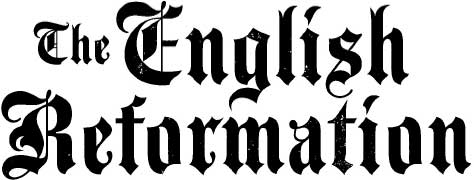
DEREK WILSON

Constable & Robinson Ltd
5556 Russell Square
London WC1B 4HP
www.constablerobinson.com
First published in the UK by Robinson,
an imprint of Constable & Robinson Ltd, 2012
Copyright Derek Wilson, 2012
The right of Derek Wilson be identified as the author of this
work has been asserted by him in accordance with the
Copyright, Designs and Patents Act 1988
All rights reserved. This book is sold subject to the condition that it shall not, by way of trade or otherwise, be lent, re-sold, hired out or otherwise circulated in any form of binding or cover other than that in which it is published and without a similar condition including this condition being imposed on the subsequent purchaser.
A copy of the British Library Cataloguing in
Publication data is available from the British Library
ISBN: 978-1-84529-646-9
eISBN: 978-1-84901-825-8
Printed and bound in the UK
1 3 5 7 9 10 8 6 4 2
First published in the United States in 2012 by Running Press Book Publishers,
A Member of the Perseus Books Group
All rights reserved under the Pan-American and International Copyright Conventions
This book may not be reproduced in whole or in part, in any form or by any means, electronic or mechanical, including photocopying, recording, or by any information storage and retrieval system now known or hereafter invented, without written permission from the publisher.
Books published by Running Press are available at special discounts for bulk purchases in the United States by corporations, institutions, and other organizations. For more information, please contact the Special Markets Department at the Perseus Books Group, 2300 Chestnut Street, Suite 200, Philadelphia, PA 19103, or call (800) 810-4145, ext. 5000, or e-mail special..
US ISBN: 978-0-7624-4626-1
US Library of Congress Control Number: 2011942355
9 8 7 6 5 4 3 2 1
Digit on the right indicates the number of this printing
Running Press Book Publishers
2300 Chestnut Street
Philadelphia, PA 19103-4371
Visit us on the web!
www.runningpress.com
Printed and bound in the UK
Four hundred and eighty years ago, a movement began which transformed every aspect of English life. It changed the social order. It changed the way the nation was governed. It changed intellectual assumptions. It changed educational aspirations. It changed the seasonal rituals which defined reality for every man, woman and child. It changed the very landscape of England. More importantly, it changed what people thought and believed about the big questions of life, death, eternity and God. For, whatever its political, social and cultural consequences, the English Reformation was, essentially, a religious movement. By that I do not just mean that it was the process by which the official religion of the country changed from Catholicism to Protestantism. Though it may seem a strange claim to make, I believe that change was almost a by-product. To understand this remarkable revolution we have to see it as the supreme example in our history of what later ages would call revivalism. Like all revivals, the Reformation worked because the conditions in society were right for it, because Gospel propaganda in the form of sermons, printed works and person-to-person evangelism was remarkably effective, and primarily because of the explosive impact of the vernacular Bible. This revival was a religious high tide which beat upon the cultural coastline and permanently altered its configuration. Then, as revivals always do, it retreated, leaving the people to adjust themselves to their new environment.
And that presents a problem to anyone setting out to tell the story of those momentous years for a twenty-first-century audience. A society which is or, at least, which constantly tells itself that it is secular or post-Christian, will find it difficult to understand what all the fuss was about. Why on earth should it matter if, in the central ritual of the Christian church, Christ is really or symbolically present in bread and wine? The argument of whether mans relationship with God rests on faith or good works must appear arcane in the extreme to anyone who considers himself not religious. That believers were prepared to be burned alive or hanged, drawn and quartered rather than deny the truth as they understood it must look like deluded fanaticism to modern people free from such inconvenient convictions. And that rulers in church and state should actually inflict those punishments on citizens can only appear from the standpoint of a more enlightened age as proof of the barbarism and bigotry of our ancestors.
The modern historian might almost wish that he could set aside the religious aspect of the Reformation and concentrate exclusively on its momentous political, social and intellectual consequences. These are easier to explain to todays readers. Some commentators have actually adopted an analytical method that marginalises the spiritual dynamic. They have focused on the emergence of the nation state or the loss of great medieval artistic treasures or the tussle between Crown and Parliament or the development of capitalism or the emergence of rational individualism. These are all important elements in the Reformation story, but they are the branches and leaves of the tree and not its trunk. As Diarmaid MacCulloch observes, Social or political history cannot do without theology in understanding the sixteenth century.it. So in our survey we must try to keep our eyes fixed on what the momentous changes of the sixteenth century actually meant to real people at every social level.
Another fact of modern life is the virtual absence of sectarian conflict. Relations between the mainstream Christian churches are more cordial than they have ever been. This, in turn, makes the arguments between Catholics, Protestants, Lutherans, Calvinists, Zwinglians and Anabaptists seem not only irrelevant but regrettable. Given this background, fresh approaches to the subject tend to downplay the deeply felt animosities between the various faith groups which confronted each other in the sixteenth century. This can be as distorting as the blatantly partisan historiography which has dominated scholarly debate for most of the last four hundred years. Foxe, Strype, Burnet, Constant, Dodd, Froude, Dixon, Gairdner, Dickens, Hughes and Duffy are just some of the honoured names in the annals of Reformation scholarship, but all of them either did not seek or experienced difficulty in finding objectivity.
Next pageFont size:
Interval:
Bookmark:
Similar books «A Brief History of the English Reformation»
Look at similar books to A Brief History of the English Reformation. We have selected literature similar in name and meaning in the hope of providing readers with more options to find new, interesting, not yet read works.
Discussion, reviews of the book A Brief History of the English Reformation and just readers' own opinions. Leave your comments, write what you think about the work, its meaning or the main characters. Specify what exactly you liked and what you didn't like, and why you think so.

